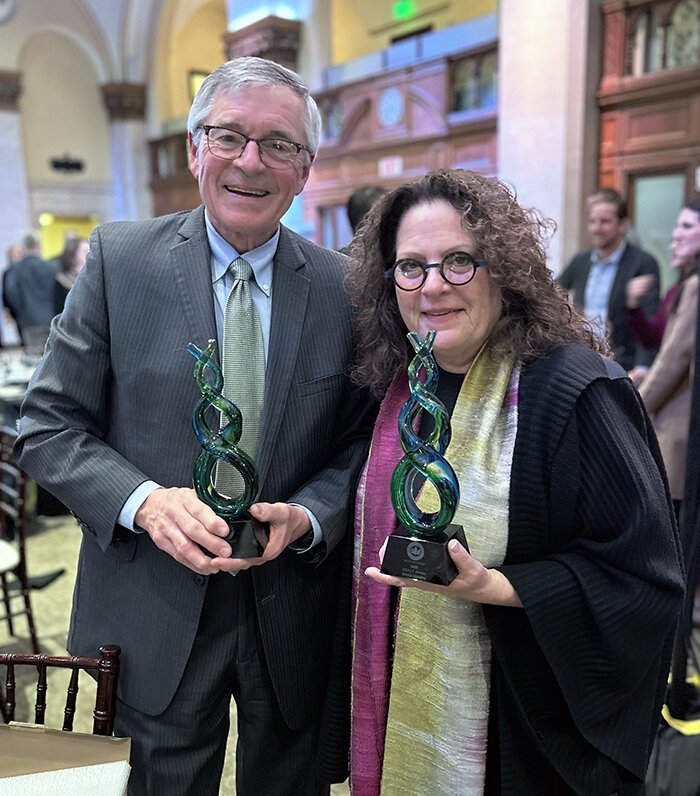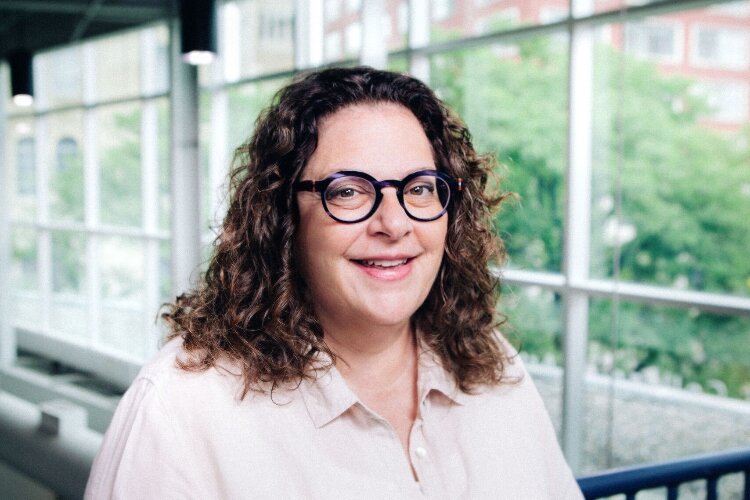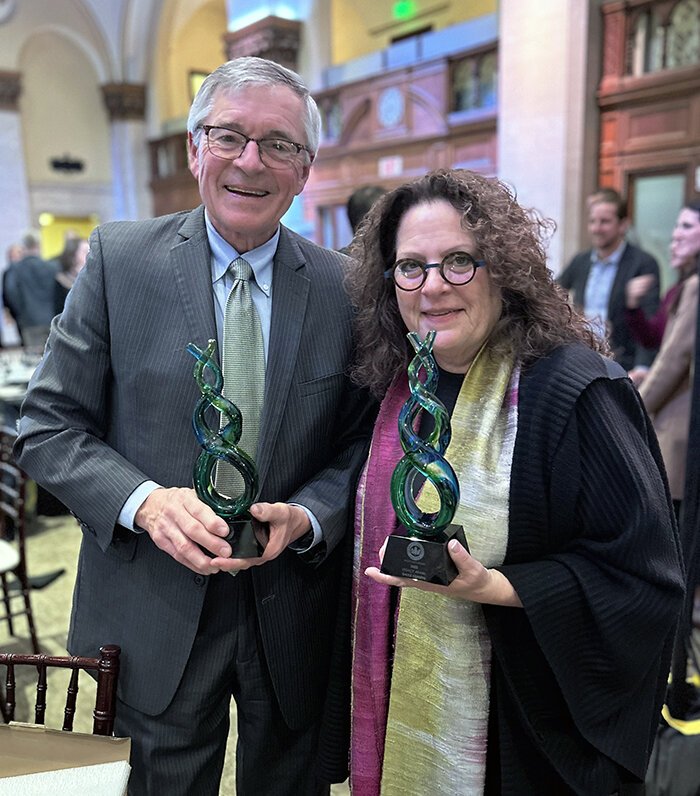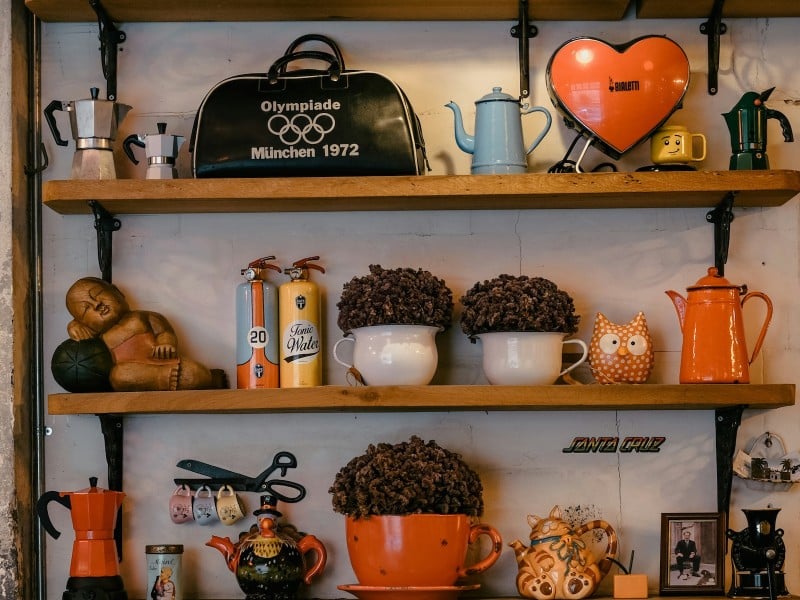KCAD’s Gayle DeBruyn on the intersection of design and sustainability
A Q&A with KCAD Professor Gayle DeBruyn, who received the inaugural Legacy Award from the U.S. Green Building Council of West Michigan for her efforts to advance sustainability in the region.
Gayle DeBruyn, a Kendall College of Art and Design of Ferris State University professor, is an important contributor to the sustainability efforts in West Michigan through her work in fine art and design.
She prepares students to contribute significantly to environmental needs and social capital through their work. DeBruyn chairs the Collaborative Design and Master of Arts in Design programs, serves as sustainability officer, and is on KCAD’s planning team for the Wege Prize international student design competition and Wege Prize High School Collaborative Studio.
Along with Ferris State trustee and former Grand Rapids Mayor George Heartwell, DeBruyn was recently honored by the U.S. Green Building Council of West Michigan for her efforts to advance sustainability in the region.
She received the council’s Legacy Award at the organization’s 2023 Annual Party & Leadership Awards Ceremony last month, and Heartwell was named this year’s 2030 Leadership Award winner.

The Legacy Award, given for the first time this year, recognizes people for their critical work within the community for a sustainable future, their character, the reputation they’ve built as a leader, and their accomplishments and actions.
It’s the latest accolade for DeBruyn, who has been recognized with multiple awards for her work in the community, including induction into the West Michigan Sustainable Business Forum Hall of Fame and The Dave & Carol Van Andel Leadership Award.
DeBruyn says her advocacy for sustainability was inspired by Bill McDonough, who received an honorary degree from KCAD in 1999. McDonough is an architect who that year was named Time Magazine’s “Hero of the Planet.”
“He delivered a short, compelling speech that changed for me the urgency of the issues at hand,” she says, “from the chemistry used in manufacturing products, to the way we mined the materials and embedded energy of transporting materials, to their durability and life cycle assessments.”
Rapid Growth recently connected with DeBruyn to learn more about her passion for the intersection of design and sustainability.
Rapid Growth: You received the inaugural Legacy Award. Were you surprised by the award, and what does this honor mean to you?
Gayle DeBruyn: I was very surprised. And to be in the company of Mayor George Heartwell was over the top. He has been a very important part of my journey in sustainable development. He has inspired and encouraged my work and taught many of us about the value of determined possibility thinking.
RG: As the chair of KCAD’s Collaborative Design and Master of Arts in Design program and its sustainability officer, how do you see the connection between design and sustainability?
GD: I stand by the statement that “all things are designed,” including systems, structures, and organizations. I am also influenced by the work of architect William McDonough (who holds an honorary doctorate from KCAD). I like his quote, “Design is the first signal of human intention.” I often lead my classes with this insight. As educators, I believe we are obligated to teach students to believe in their power to make aspirational change to make better the world we live in.
RG: You’ve been inducted into the West Michigan Sustainable Business Forum Hall of Fame. How did you become an expert in sustainability, and how have you incorporated it into your design career?
GD: I am a longtime member, past president, and fan of the WMSBF. These are my “people.” I am grateful that a colleague introduced me … in the mid-’90s (ish?) At that time, we all fit into a corporate board room.
I appreciate very much the determined passions of the many who have been a part of the forum. The beginnings, a group of manufacturing competitors working together to better the environmental impacts of their businesses. The cooperative, collaborative ethic of a group of people that leads by sharing best practices so we can together strive to make transformational impacts.
In the earlier years, the Forum invited many of the world-class voices of the sustainable development conversation. Janine Benyus, Bill McDonough, Amory Lovins, Ray Anderson (who also holds a KCAD doctorate), to name a few. These folks brought to us their best practices and encouraged our work. Today, the Forum continues to bring important voices to our community: Ken Webster, expert in circular economy strategies and John Elkington, the author of the triple bottom line method of sustainable development. And more importantly, it connects us to our own local rock stars of the work, like Keith Winn – one of the writers of the first USGBC LEED protocols who has been recognized many times for his determined work to lessen our impacts on the environment and improve the quality of life for all – Cheri Holman, Alison Waske-Sutter, Renae Hesselink, Rachel Hood, and so many more making big impacts.
RG: You’ve received many honors in your career. Can you describe some of your most important accomplishments?
GD: Design is a team sport. A practice! I am grateful to be in a place where trying and testing is expected.
Working on KCAD’s Wege Prize Team has been amazing! We are in our 11th year of creating and producing an important international collegiate design competition that challenges students to aspire to change our linear economy to one that is circular, keeping materials in constant flow, never to be buried in landfills. Challenged by the many “wicked problems” facing us. Remembering that design is the first signal of human intention – we have the power to change the systems through the whole-systems-design-thinking, interdisciplinary, collaborative process. Through this project, I have been introduced to many of the finest world changers – our illustrious team of judges, local and international experts in social, economic and environmentally sustainable practices leading us to a transformative circular economy.
RG: What’s next for you? What’s still on your list to accomplish?
GD: I am sure now that a career is not necessarily a prescribed corporate ladder to climb. As an interior design graduate landing a great job in the West Michigan furniture industry, I thought that I nailed it! It would be my life’s career. I did not expect to own a business, any more than I expected to find a home in academia. I believe in saying “yes” to invitations of challenge. I believe that folks only invite people to a challenge whom they feel will succeed in the endeavor. And if they are there to assist you on the journey, you likely will succeed. So, you should definitely try. And if you are not having fun, you are not doing the right thing … yet.
And, It is also great to work in a place where you can try stuff and ask forgiveness … if it doesn’t work.
From furniture to shoes, from arts to education to even policy creation, design is everywhere you look. Designed in Michigan, a story series coming out of West Michigan, is devoted to sharing the expansive role design plays in Michigan’s past, present and future. It is made possible through the support of Kendall College of Art and Design and Landscape Forms.

















